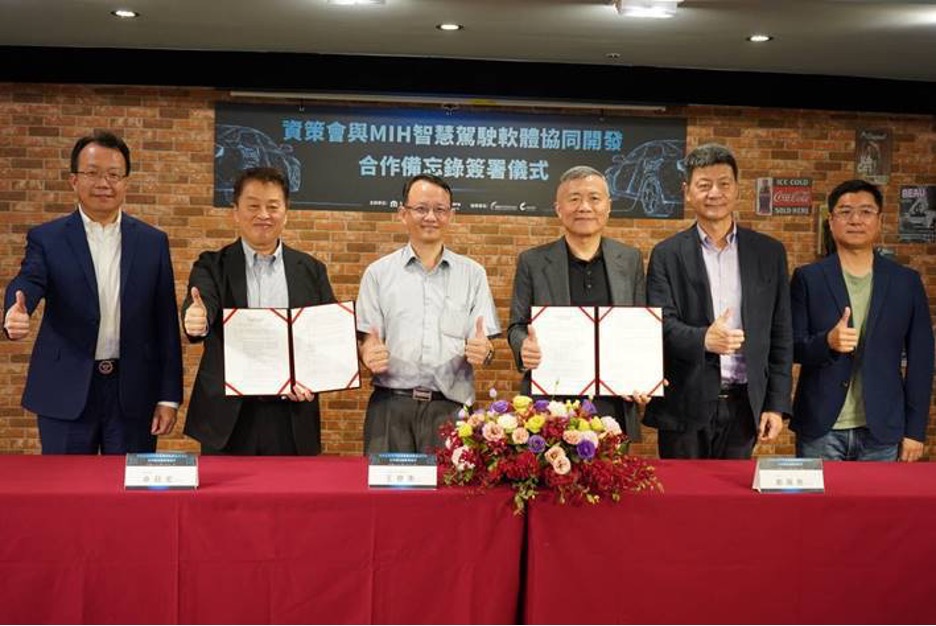STI and MIH Consortium Join Hands on Development of AI Software for Smart Automobiles
2023/06/12 | By Andrew HsuOn May 30, the Software Technology Institute (STI) and the MIH (Mobility in Harmony) Consortium signed an MOU (memorandum of understanding) for the collaborative development of smart driving software. This groundbreaking partnership represents a milestone in the co-development of AI software among Taiwan's smart automobile and EV industry.
The initiative will utilize the “Formosa Dataset,” which is the world's first dashcam video training dataset developed by Department of Industrial Technology (DoIT) under Ministry of Economic Affairs (MOEA) of Taiwan, to empower sensor factories and system integrators with AI detection technologies to work out marketable smart driving systems and services.
In order to sharpen the global competitive edges of Taiwan's domestic smart automobile industry, DoIT has initiated technology development programs (TDP). These programs aim to attract investments totaling more than NT$2.9 billion, with a goal of generating an annual production value of NT$34 billion in the future. As part of TDPs, "Formosa Dataset" is designed to simplify the integration of AI into EVs to a level comparable to developing a smartphone app. Reportedly a resounding success, the technology enables more industries to rapidly develop innovative applications while keeping costs to a minimum.
Dr. CH Cho, President of the Institute for Information Industry (III), highlights that III has already been utilizing AI detection technology for many years, and yielding fruitful outcomes in the realm of automotive electronics. Besides Formosa Dataset, notable achievements include automated driving subsystems, all-weather sensor enhancement technology, and so forth. In the meantime, III is also trying to boost its influence and contribution to related industries in Taiwan by changing its role as a highly-involved participant originally to a third-party advisor, so as to provide stakeholders with guidance amidst the intricate landscape of global trends.
Cho further emphasizes that the collaboration between III and MIH is driven by the utilization of real datasets, aiming to empower the industry and foster the development of simulation tools. The tools will enable the creation of third-party services, such as the inspections of AI-based safety detection for automobiles. Simultaneously, III remains committed to exploring innovative technologies and guiding the industry toward a forward-looking orientation. The synergy seeks to speed up the digital transformation within the smart automotive electronic industry, enhancing Taiwan's core competitiveness while expanding its own market niches.
Cheng Hsien-Tsung, the CEO of MIH, is aware of the increasing popularity of AI technology in automotive software and advanced driver assistance systems (ADAS). The integration of AI is key to ensuring the safety of both individuals and vehicles, enabling essential functions such as pedestrian detection, traffic light detection, and in-car driver monitoring.
MIH has also engaged III as the team leader in the working group responsible for cloud services, development platforms, and tools. This partnership is dedicated to establishing comprehensive interface regulations that encompass various aspects such as software development, simulation, testing, and cloud services. The ultimate objective is to accelerate the overall development process of automobiles while promoting integration between hardware and software.





